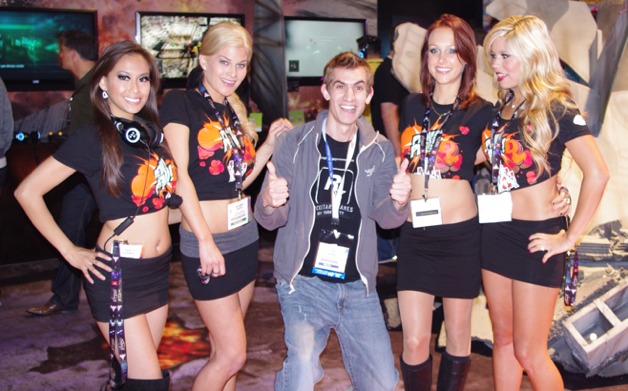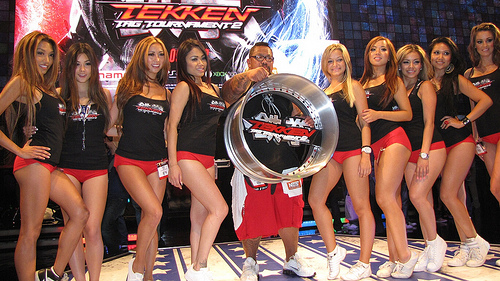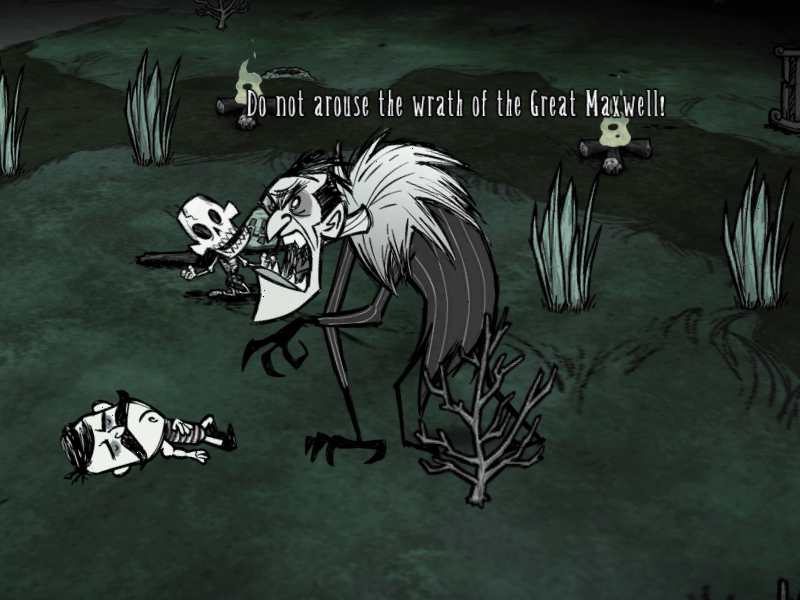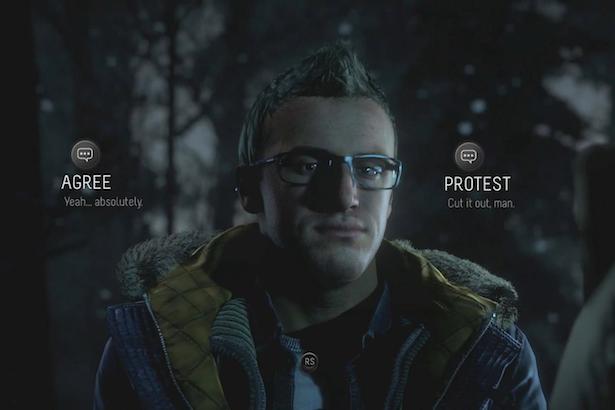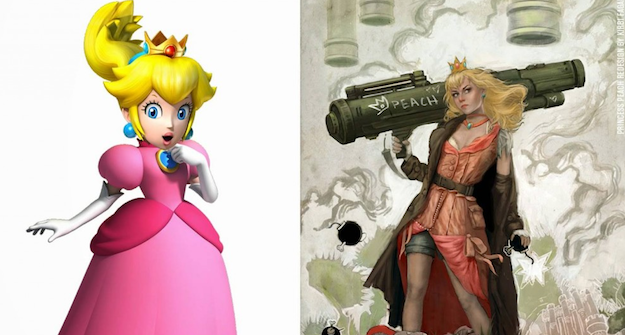Approximately two years ago in the wake of E3 2013 I wrote an article for the site about how I had once wanted to be a booth babe. For those who may be unfamiliar with the term, a “booth babe” is a woman, generally a model, who is hired by a company to promote said company, a brand, or a specific product. These often scantily-clad women are stationed at booths at trade shows like E3 for the express purpose of using their sexuality to attract men’s attention to whatever it is they’re advertising. Companies who promote themselves or their products using booth babes are essentially hoping that sex appeal will draw more eyes to their booths, encourage discussion of their products, promote consumer-generated advertising (through guests taking pictures with their booth babes and sharing them) and increase sales. Essentially, booth babes are dressed and presented in a way that entices the male gaze with the hope that it draws in business from tech trade shows’ largely male audience.
The presence of booth babes at technology and video game trade shows like E3 is a hotly contested topic, and one we’ve discussed before on our podcast. I’m of the mindset that booth babes are harmful for women working in the industry and problematic for a number of reasons. Booth babes reinforce the sexist idea that women are valuable only for their appearance and for how visually pleasing they are to men. They risk giving the false impression that this is where women “belong” in these trade shows rather than out on the floor as professionals or working the booths as experts. With booth babes sometimes knowing very little about the product they’re promoting or even the industry as a whole, women working professionally in the industry – particularly those who are stationed behind the booths – might be assumed to have that same lack of knowledge. They’re physical representations of companies denying the purchasing power of women or of high-powered female company heads. They also are likely to make female attendees uncomfortable, women serving as reminders of the stereotypes they have to disprove and their minority status in the tech industry. Plus the idea that booth babes increase sales is a questionable one at best, as this article by Spencer Chen of TechCrunch points out. While, at the end of the day, being a booth babe is just a job, an idea that this article by Elaine Low for Jezebel explores, it’s hard to deny that their presence at these conferences has some negative consequences on women working in tech and gaming.
But back in middle and high school I never really thought about most of the concerns I’ve listed above; I wanted to be a booth babe. In those days, E3 was covered live on television almost constantly throughout the entire week. Not only were the conferences livestreamed, but they would interview developers, get up close and personal with the games, and tour the show floor. For someone like me who loved gaming but, outside of playing the actual games themselves, was rather removed from it, this kind of coverage of E3 was somewhat of a godsend. I fantasized about being there and getting to experience the thrill of it all.
However, as I mentioned in my initial post, the only way I saw myself getting to E3 back then was by applying to be a booth babe. It seemed to me, given that they were right there in the action and had access to industry professionals and heaps of new games, that being a booth babe was a good way to go about experiencing E3. Given that it was largely closed to “laypeople” and regular fans, it seemed like my only option. After all, other than the occasional female television host (which never seemed possible for me, I was too shy), the only women I’d really see at E3 were booth babes. Sure I’d probably have to wear some uncomfortable and revealing clothing, but at least I’d be there. As sad as it seems to me now, I genuinely thought that becoming a booth babe and using my body was the only way I would be able to get there.
Around the same time I was writing my original article was when I was first discovering the possibility of a career in gaming. A job working on or creating games was something I’d genuinely never thought possible for me. Now, approximately two years since I began to grow starry-eyed at the idea of a career in video games, I find myself actually working in the industry. What’s more, I have an industry pass to this year’s E3, addressed specifically for me, in my inbox. Although my plans unfortunately fell through and I wasn’t able to attend this year, I can’t help but reflect on what that pass – that simple email – means. For someone like myself who thought the only way I’d get access to one of the gaming industry’s largest events was by essentially making myself a sexualized object, applying and being approved for an E3 industry pass is a sign of just how far I’ve come; my story, on the other hand, is a testament to just how harmful booth babes and lack of representation at E3 and other tech-based conferences really is.
Back in middle and high school, I had become convinced that I would be an outsider in the industry I loved so much unless I was there for show. I assumed that all the booth babes I saw on television were women who were interested in video games that just happened to be attractive enough to be chosen for the show floor rather than hired models because I legitimately thought that was how women could get into the industry. It wasn’t that I thought that women were unable to have careers in gaming, but I thought becoming a booth babe seemed like the most obtainable route into the fray. Thankfully, with the guidance of a supportive community behind me and a bit of my own research, I was able to see all my options and start on the path toward what will hopefully be a long career in gaming. Had I not had that support, I’m not sure I’d be here, working on an actual game and staring at a ticket to E3 with my name on it.
The state of women in E3 has certainly improved since I was in high school, and I’d even say it’s even taken a few steps forward since 2013. Though the number of female presenters still leaves something to be desired representation-wise, it’s hard to argue that the industry is on an upward trend. But for young girls watching the events of E3 unfold with eager eyes, excited for the future of video games, the continued presence of booth babes does nothing but discourage and turn new female talent away from the industry and possibly much worse.

